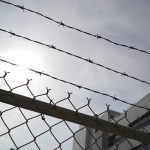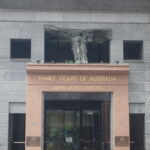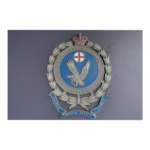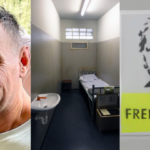What are the Penalties for Drink Driving in New South Wales?
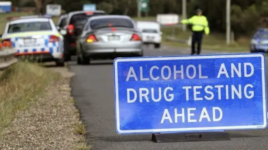
The testing of a driver’s breath for alcohol began in New South Wales on 16 December 1968. However, a driver could only be tested after a traffic accident or an alleged detection of a traffic offence.
The prescribed blood alcohol limit at the time was 0.08 grams per 210 litres of breath or 100 milligrams of blood.
That limit was reduced to 0.05 on 15 December 1980, but the testing restrictions remained in place due to concerns about the impact on civil liberties of arbitrary testing regimes.
Despite those concerns, the New South Wales government passed the state’s first piece of legislation enabling a trial of arbitrary breath testing on 17 December 1982.
The trial was seen as successful, and random breath testing was introduced across the state on 10 December 1985.
Since the initial trial, police in our state have conducted 123 million random breath tests and arrested nearly a million drivers considered to be over the prescribed alcohol limit.
40th anniversary commemoration
Police say that to mark the 40th anniversary of the random breath testing, “[o]peration Fume was conducted from 12.01am on Friday 16 December 2022 until 11.59 Saturday 17 December 2022 across the state, targeting drug and alcohol-related driving offences.”
Police say that over that period, 36,242 breath tests and 10,491 drug tests were undertaken leading to over 500 drivers being arrested for drink or drug driving.
What are the maximum penalties for drink driving in New South Wales?
The maximum penalties that apply to drink driving offences in our state depend on:
- The category within which the driver’s blood alcohol reading falls, and
- Whether it is the driver’s first or subsequent conviction for a major traffic offence within the previous 5 years.
What are the categories of drink driving offences?
There are 5 categories of drink driving offences in our state, which are:
| Category | Driver licence type | Blood alcohol concentration |
| Novice range | Learner or provisional | 0.001 to 0.019 |
| Special range | Learner or provisional | 0.020 to 0.049 |
| Low range | All | 0.05 to 0.079 |
| Middle range | All | 0.80 to 0.149 |
| High range | All | 0.150 and higher |
What is a major traffic offence?
The maximum penalty for drink driving will increase if the driver has been ‘convicted’ of a major traffic offence within the previous 5 years.
In that regard, it is important to be aware that the definition of ‘convicted’ includes non-conviction orders following a plea of guilty, such as section 10 dismissals and conditional release orders where a conviction is not recorded against the driver’s name.
Major traffic offences in NSW are:
- Any offence involving death or bodily harm to another person caused by or arising out of the use of a motor vehicle, including murder, manslaughter, intentionally or recklessly wounding or causing grievous bodily harm (sections 33 and 35 of the Crimes Act), furious driving (section 53) and causing grievous bodily harm (section 54)
- Predatory driving (section 51A), police pursuit (section 51B) and failing to stop and assist after impact causing death or grievous bodily harm (section 52AB),
- Drink driving (section 110 Road Transport Act),
- Drug driving (section 111),
- Combined alcohol and drug driving (section 111A),
- Driving under the influence (section 112),
- Negligent driving occasioning death or grievous bodily harm (section 117(1)),
- Driving furiously, recklessly or at a speed or in a manner dangerous (section 117(2)),
- Menacing driving (section 118),
- Failing to stop to assist after impact causing injury or death (section 146),
- Refusing to submit to a breath analysis (clause 16(1)(b) of Schedule 3),
- Refusing or failing to provide a blood, oral fluid or urine sample (clause 17 of Schedule 3),
- Wilfully introducing amount or altering concentration of alcohol or other drugs (clause 18 of Schedule 3), or
- Aiding, abetting, counselling or procuring the commission of, or being an accessory before the fact to any of the above.
So, what are the penalties?
For the offence of driving with a novice, special or low range prescribed concentration of alcohol (first offence), police have had discretion since 20 May 2019 to issue a penalty notice (ie a fine) rather than send a person to court.
At the time of writing, the fine is $587.
However, it’s important to be aware that although the fine does not come with a criminal conviction (criminal record), it does come with a 3-month driver licence suspension.
Putting aside penalty notices, the maximum penalties are:
Novice range drink driving
Novice range drink driving is where a learner or provisional licence plate holder drives with a blood alcohol concentration from 0.001 to 0.019.
The ‘automatic period of disqualification’ is 6 months if you haven’t been convicted of another ‘major traffic offence’ within the previous 5 years.
The Magistrate can reduce that disqualification period to a ‘minimum’ of 3 months.
The maximum fine is $2,200.00.
2nd or Subsequent Offence
If it is your 2nd or more major traffic offence within 5 years, the penalties are:
- 3 month disqualification which can be reduced to 1 month, followed by
- 12 months during which you must have an interlock device installed to your vehicle, and
- Maximum fine of $3,300.
Alternatively, the court can ‘exempt’ you from the interlock requirement and impose:
- 12 month disqualification period which can be reduced to 6 months, and
- Maximum fine of $3,300.
Special range drink driving
Special range drink driving is where a learner or provisional licence plate holder drives with a blood alcohol concentration from 0.02 to 0.049.
The ‘automatic period of disqualification’ is 6 months if you have not been convicted of another ‘major traffic offence’ within the previous 5 years.
The Magistrate can reduce that disqualification period to a ‘minimum’ of 3 months.
The maximum fine is $2,200.00.
2nd or Subsequent Offence
If it is your 2nd or more major traffic offence within 5 years, the penalties are:
- 3 month disqualification which can be reduced to 1 month, followed by
- 12 months during which you must have an interlock device installed to your vehicle, and
- Maximum fine of $3,300.
Alternatively, the court can ‘exempt’ you from the interlock requirement and impose:
- 12 month disqualification period which can be reduced to 6 months, and
- Maximum fine of $3,300.
Low range drink driving
Low range drink driving is where a driver has a blood alcohol concentration from 0.05 to 0.079.
The maximum penalties where it is your first major traffic offence within the past 5 years are:
- 6 months of disqualification from driving, which can be reduce to a minimum of 3 months, and
- Maximum fine of $2,200.
2nd or Subsequent Offence
If it is your 2nd or more major traffic offence within 5 years, the penalties are:
- 3 month disqualification which can be reduced to 1 month, followed by
- 12 months during which you must have an interlock device installed to your vehicle, and
- Maximum fine of $3,300.
Alternatively, the court can ‘exempt’ you from the interlock requirement and impose:
- 12 month disqualification period which can be reduced to 6 months, and
- Maximum fine of $3,300.
Middle range drink driving
Middle or ‘mid’ range drink driving is where a driver has a blood alcohol concentration from 0.08 and 0.149.
The maximum penalties where it is your first major traffic offence within the past 5 years are:
- Up to 9 months in prison,
- 6 month driver licence disqualification which can be reduced to 3 months, followed by
- 12 months during which you must have an interlock device installed to your vehicle, and
- Fine of $2,200.
Alternatively, the court can ‘exempt’ you from the interlock requirement and impose maximum penalties of:
- Up to 9 months in prison
- 12 month licence disqualification which can be reduced to 6 months, and
- Fine of $2,200.
2nd or Subsequent Offence
If it is your second or more major traffic offence in the past 5 years, the maximum penalties are:
- Up to 12 months in prison,
- 9 month licence disqualification which can be reduced to 6 months, followed by
- 24 months during which you must have an interlock device installed to your vehicle, and
- Fine of $3,300.
Alternatively, the court can ‘exempt’ you from the interlock requirement and impose maximum penalties of:
- Up to12 months in prison,
- 3 year licence disqualification which can be reduced to 12 months, and
- Fine of $3,300
High range drink driving
High range drink driving is where a driver has a blood alcohol concentration of 0.150 or higher.
The maximum penalties where it is your first major traffic offence within the past 5 years are:
- Up to 18 months in prison,
- 9 month driver licence disqualification which can be reduced to 6 months, followed by
- 24 months during which you must have an interlock device installed to your vehicle, and
- Fine of $3,300.
Alternatively, the court can ‘exempt’ you from the interlock requirement and impose maximum penalties of:
- Up to 18 months in prison,
- 3 year licence disqualification which can be reduced to 12 months, and
- Fine of $3,300.
2nd or Subsequent Offence
If it is your second or more major traffic offence in the past 5 years the maximum penalties are:
- Up to 2 years in prison
- 12 month licence disqualification which can be reduced to 9 months, followed by
- 48 months during which you must have an interlock device installed to your vehicle, and
- Fine of $5,500
Alternatively, the court can ‘exempt’ you from the interlock requirement and impose maximum penalties of:
- Up to 2 years in prison
- 5 year licence disqualification which can be reduced to 2 years, and
- Fine of $5,500
Can I avoid a criminal record for drink driving if I plead guilty?
It is important to be aware that courts generally have the power to issue non-conviction orders for drink driving cases, such as section 10(1)(a) dismissals and conditional release orders without conviction.
If you plead guilty to, or are found guilty of, a drink driving offence and the magistrate is persuaded to grant such an order, it means there will be no criminal conviction recorded against your name (ie no criminal record), no driver licence disqualification and no fine.
However, it is important to be aware that courts do not have the power to make section 10 non-conviction orders in circumstances where you have already received such an order for a major traffic offence within the past 5 years.
But what do the courts actually impose?
The Judicial Commission of New South Wales publishes statistics called the Judicial Information Research System, or JIRS, on the penalties handed down for specific offences in our state.
And while it does not record the lengths of driver disqualifications imposed for traffic offences, or specify whether it is the driver’s first or subsequent major traffic offence within 5 years, the Commission does provide a breakdown of other penalties imposed.
According to the Commission, the breakdown for those who plead or are found guilty of drink driving without additional offences (eg negligent or dangerous driving) is as follows:
Novice range drink driving
| Number of Cases | 1,488 |
| Section 10 Dismissal | 7% |
| Section 10 bond (now conditional release order without conviction) | 33% |
| Section 10A (+ disqualification) | 1% |
| Fine (+ disqualification) | 58% |
| Community Service Order (+ disqualification) | <1% |
| Suspended Sentence (+ disqualification) | 0% |
| Intensive Correction Order (+ disqualification) | 0% |
| Periodic Detention (no longer applicable) | 0% |
| Home Detention (+ disqualification) | 0% |
| Prison (+ disqualification) | 0% |
Special range drink driving
| Number of Cases | 5,059 |
| Section 10 Dismissal | 3% |
| Section 10 bond (now conditional release order without conviction) | 23% |
| Section 10A (+ disqualification) | 1% |
| Fine (+ disqualification) | 72% |
| Community Service Order (+ disqualification) | <1% |
| Suspended Sentence (+ disqualification) | 0% |
| Intensive Correction Order (+ disqualification) | 0% |
| Periodic Detention (no longer applicable) | 0% |
| Home Detention (+ disqualification) | 0% |
| Prison (+ disqualification) | 0% |
Low range drink driving
| Number of Cases | 28,382 |
| Section 10 Dismissal | 7% |
| Section 10 bond (now conditional release order without conviction) | 34% |
| Section 10A (+ disqualification) | 1% |
| Fine (+ disqualification) | 57% |
| Community Service Order (+ disqualification) | <1% |
| Suspended Sentence (+ disqualification) | 0% |
| Intensive Correction Order (+ disqualification) | 0% |
| Periodic Detention (no longer applicable) | 0% |
| Home Detention (+ disqualification) | 0% |
| Prison (+ disqualification) | 0% |
Mid range drink driving
| Number of Cases | 42,638 |
| Section 10 Dismissal | 1% |
| Section 10 bond (now conditional release order without conviction) | 14% |
| Section 10A (+ disqualification) | 0% |
| Fine (+ disqualification) | 66% |
| Section 9 bond ( +disqualification) | 13% |
| Community Service Order (+ disqualification) | 0% |
| Suspended Sentence (+ disqualification) | 0% |
| Periodic Detention (no longer applicable) | 0% |
| Home Detention (+ disqualification) | 0% |
| Prison (+ disqualification) | 0% |
High range drink driving
| Number of Cases | 15,447 |
| Section 10 Dismissal | 0% |
| Section 10 bond (now conditional release order without conviction) | 2% |
| Section 10A (+ disqualification) | 0% |
| Fine (+ disqualification) | 41% |
| Section 9 bond (now a community correction order) | 29% |
| Community Service Order (now part of intensive correction orders) | 11% |
| Suspended Sentence (replaced by intensive correction orders) | 2% |
| Periodic Detention (no longer applicable) | 2% |
| Home Detention (now part of intensive correction orders) | 1% |
| Prison (+ disqualification) | 5% |
Going to court for a traffic offence?
If you are going to court for a traffic offence, call or email Sydney Criminal Lawyers anytime to arrange a free first consultation with an experienced, specialist traffic lawyer who will accurately advise you of your options, the best way forward, and fight for the optimal outcome in your specific situation.

